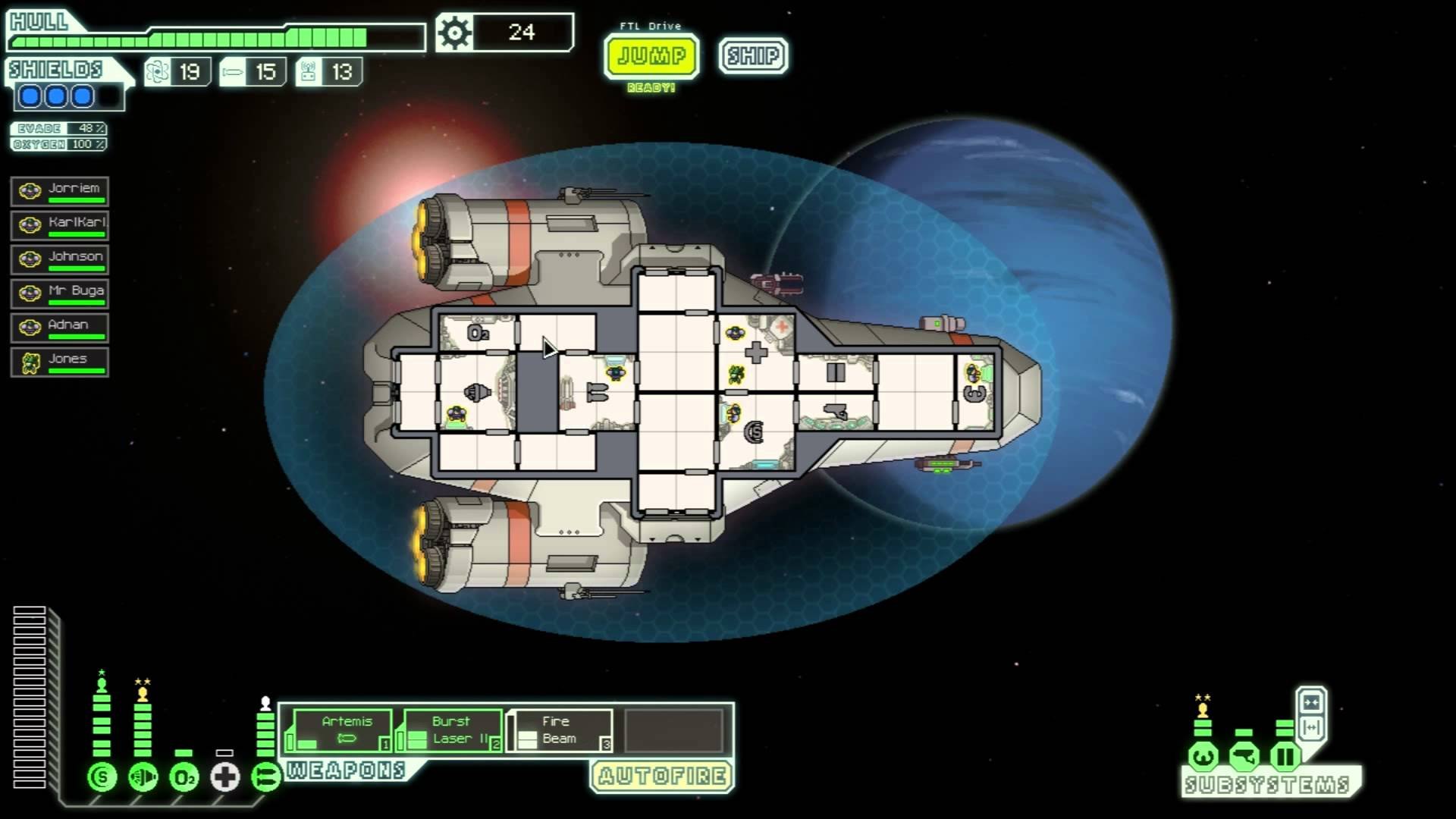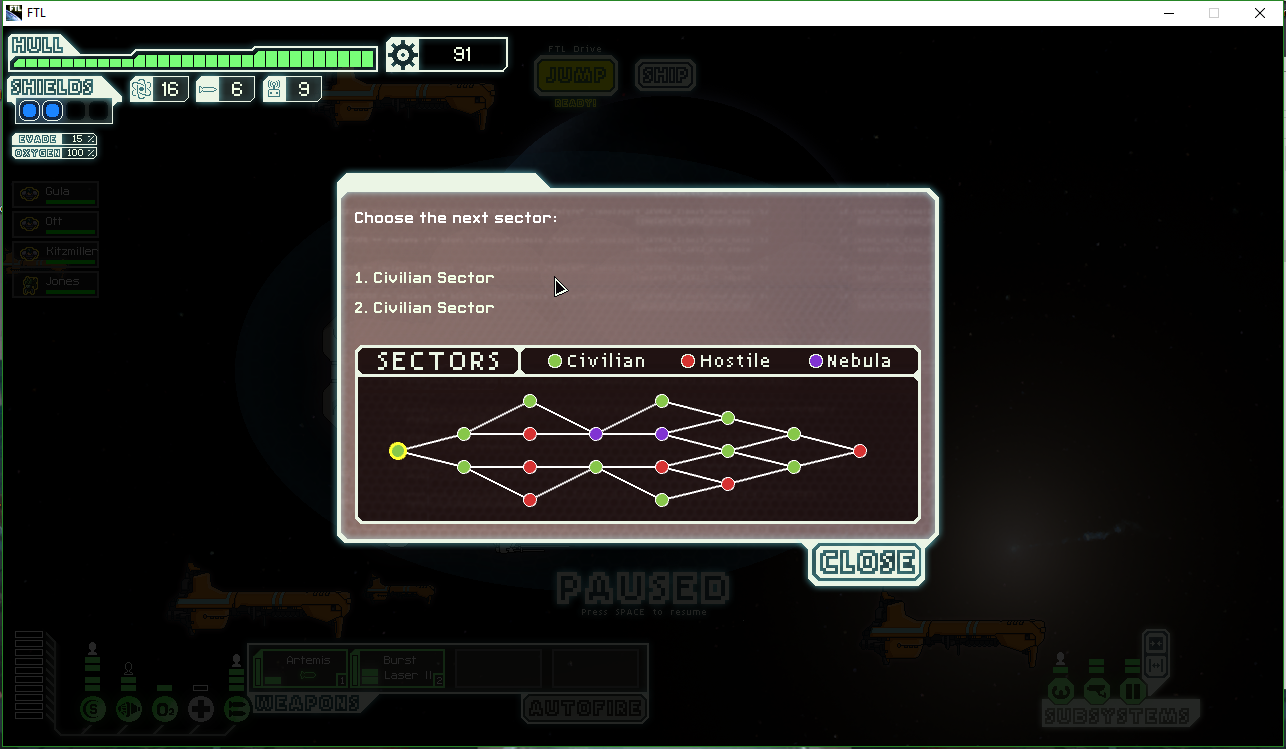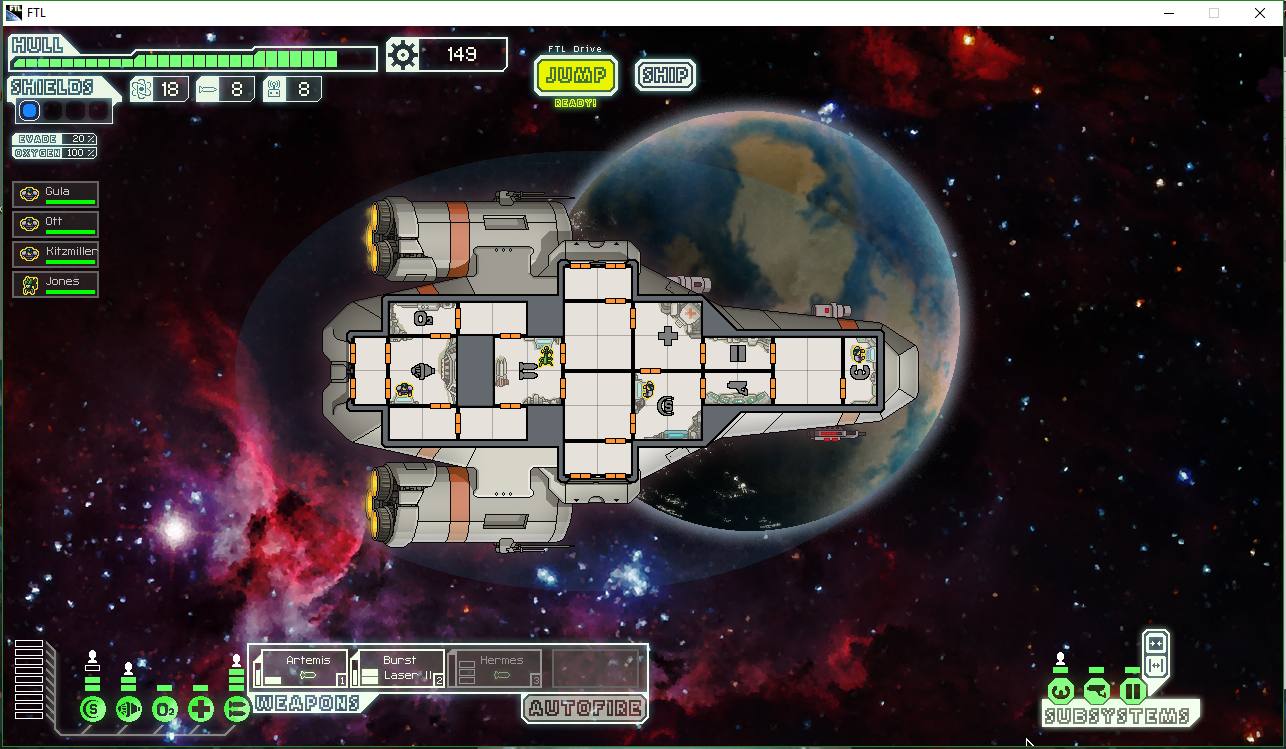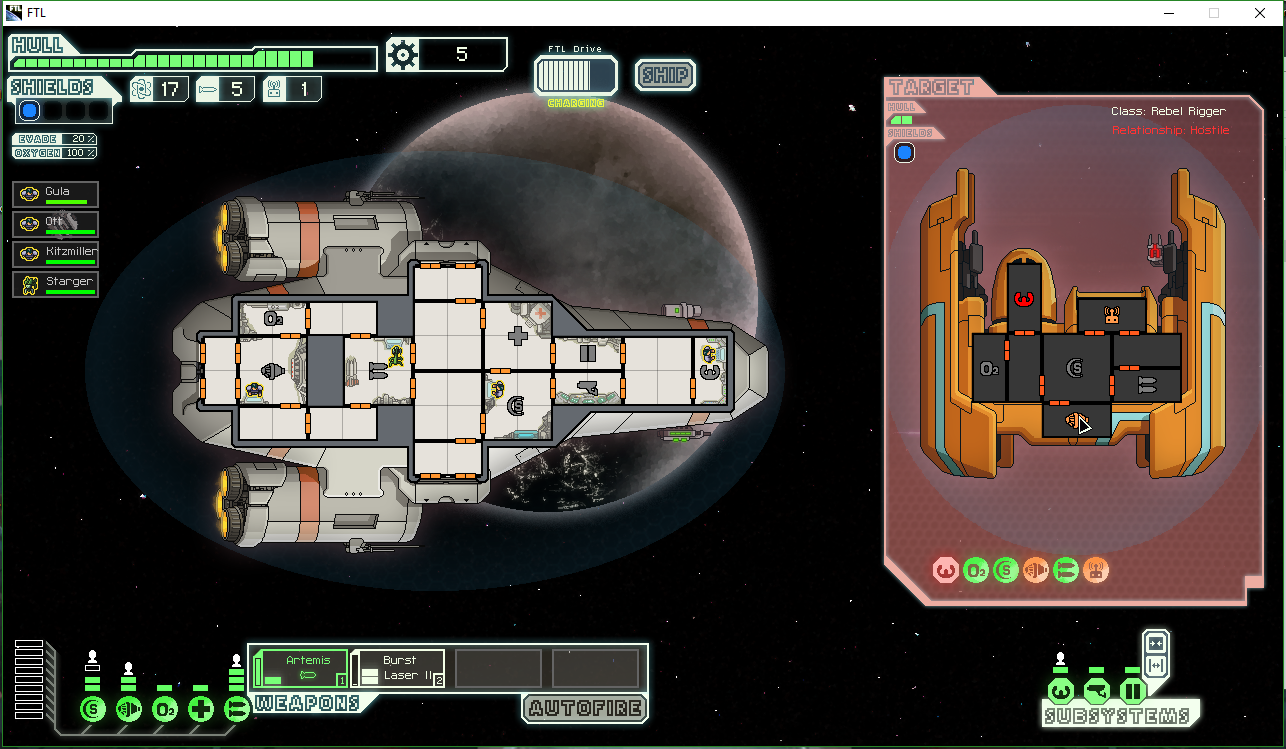Faster Than Light review
One of the first indie games I ever tried was FTL: Faster Than Light. At that time, I had never really looked into “indie games” before; as a non-PC gamer, I’d only ever used my computer to play classic RPGs and strategy games in high school. But a friend recommended FTL, and since he’d also introduced me to Mass Effect, I looked into this cartoony-looking title.
I started by watching videos on YouTube…which escalated to putting dozens of hours into an ongoing series of spacefaring adventures. (Thank you, ArchmageMelek, for your Let’s Play series.) I quickly discovered that the “lack of features” masked a vast depth of replayability. FTL embraces emergent storytelling because each and every captain’s voyage feels unique, personal, and fraught with peril—something that I (as a storyteller) value more than any other feature. I was hooked.
Spool up the FTL
FTL feels like the first indie-gone-mainstream game built around the concept that players shouldn’t reach the final stage for weeks, months, or even (in some cases) years. That’s because, at its core, FTL is a roguelike game (although there are sites dedicated to defining this word and policing the genre).
The game relies on its unforgiving difficulty and length (only a few hours for a victorious run) to encourage players to learn from their failures and try new tactics. FTL also implements variable events, enemies, and sectors/destinations, which further complicates the “learn by doing” mindset. But both of these elements are key tenets of the roguelike genre; FTL’s charm comes in how it combines that challenge with its lighthearted aesthetic and classic SciFi tone.
Developer Subset Games decided to take the rules of a genre they loved, infuse it with a setting straight out of 80s SciFi, and then balance all of that on a narrative that carries weight. Then they added enough variable pieces to make sure that subsequent playthroughs still felt fresh (which is where the emergent storytelling comes into play), and quickly realized that they had struck gold with a game that flew up the sales charts and remains a key piece of any PC gamer’s library.
The visuals and soundtrack of FTL definitely give a casual vibe, but the game wallops a punch that can make a masochist out of anyone. I have friends who played dozens of hours without defeating the final boss (You know who you are!), but they kept coming back, hopeful to get one jump further and unearth one new tip to prepare them for next time.
Captain on deck
If you haven’t played a roguelike game before, I’m sure the idea of a game you can’t beat seems wrong, but PC gamers have always had a higher tolerance for challenging games. However, I came into FTL without any grasp of the systems or the complexity — I’d just watched a bunch of videos by YouTubers and decided I wanted to start creating my own “Captain’s Log” of unique and personal stories.
In FTL, I took control of a ship that carried important information about the Rebel fleet. Partnered with two others (named after my siblings), we set out on this pivotal mission, knowing that the Rebels would pursue us doggedly. They chased us from sector to sector, pinning us into dangerous alien-controlled regions or nebulae that affected our sensors. In the end, all we could do was survive long enough to deliver our intel and warn the Federation leadership of impending attack.
Space proved unforgiving. Rebel force littered the galaxy, and I led my crew to each new planet knowing that we could face anything: slavers, a malfunctioning station, an asteroid field filled with pirates. My choices affected the outcome of each scenario, and the diversity of options made it clear that no two captains would experience an identical playthrough — the story of the HMS Archimedes was all my own…and the poor unfortunate souls beside me.
This self-made narrative is FTL’s greatest strength. Yes, each game is different and fairly short, encouraging me to try again and again. The only guarantees were the ship I flew and the crewmembers accompanying me (because each game starts in a hangar where I chose those things). But over time I unlocked new ships, discovered strange mysteries, and ultimately developed new tactics each session.
In a nutshell
FTL: Faster Than Light is a remarkable game and an indie masterpiece. I recently introduced my cousin to FTL, and that re-awoke my desire to get back in the cockpit and attempt to save the Federation. Considering the game’s humble beginnings, FTL’s impact on the PC gaming scene (and the fact that it has maintained its relevance for half a decade) speaks to just how excellent it is, and the thoughtful storytelling and unique aesthetic elevate that experience to an entirely new level.
I'm confident you’ll enjoy it if you liked Bastion (another indie success) or pretty much any other roguelike. FTL is pretty accessible and could appeal to just about any casual gamer.
Pros
+ Emergent storytelling
+ Visual style
+ Longevity/replayability
Cons
- Learning curve (can be discouraging for new players)





